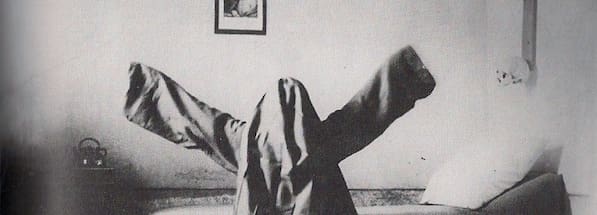 The mind with all its powers would like to hold first place among all the instruments employed by God, but it must, like a dangerous slave, be reduced to the lowest place. It might be of great service if made use of in a right manner, but it can do much injury if it is not kept in subjection. When the soul longs for outward supports, grace whispers to the heart that God’s invisible work is enough. When the soul wishes to forego created means of help at the wrong time, God shows it that such help should be received and used with singleness of heart, in keeping with His established will, and that we should use such means as tools, not for their own sake, but as though we used them not, and when we are deprived of them all, realize that we lack nothing.
The mind with all its powers would like to hold first place among all the instruments employed by God, but it must, like a dangerous slave, be reduced to the lowest place. It might be of great service if made use of in a right manner, but it can do much injury if it is not kept in subjection. When the soul longs for outward supports, grace whispers to the heart that God’s invisible work is enough. When the soul wishes to forego created means of help at the wrong time, God shows it that such help should be received and used with singleness of heart, in keeping with His established will, and that we should use such means as tools, not for their own sake, but as though we used them not, and when we are deprived of them all, realize that we lack nothing.
Although God’s action is infinite in its power, it can take full possession of our souls only insofar as we are void of all confidence in our own action. For this confidence, being founded on a false idea of our own ability, excludes God’s action. This is the obstacle that is most likely to hinder God’s work, for He finds it in the soul itself. As far as outside obstacles are concerned, God can change them at will into powerful aids for our progress. Everything is both equally useful and useless to Him. Without His action, everything is as nothing. With it, the veriest nothing can become everything.
Whatever the value in itself of meditation, contemplation, spoken prayer, interior silence, intuition, quiet retreat, or bustling activity – whatever it may be in itself, even if very desirable – that which God wills at the present moment is best, and everything else must be regarded by the soul as nothing at all.
Thus seeing only God in all things, we must take or leave them all as He pleases, so as to live, to be strengthened, or to hope only by what He ordains, and never by any power or virtue which does not come from Him. We ought, at every moment and on all occasions say with St. Paul, “Lord, what wilt Thou have me do?” (Acts 9:6), without preferring this or that, but only to accomplish His holy will. “The mind prefers one thing, the body another; but Lord, I desire nothing but to do Your holy will. Work, contemplation or prayer, spoken or silent, active or passive; the prayer of faith or of understanding; universal grace or some specific gift – they are all nothing Lord, unless Your will makes them real and useful. Your holy will alone is the object of my devotion, not any of these things, however exalted and sublime they may be; because Your grace has been given for the perfection of the heart rather than of the mind.”
The presence of God, which sanctifies our souls, is the indwelling of the Holy Trinity in the depths of our hearts when they submit to His holy will. The presence of God resulting from the act of contemplation effects this intimate union in us in exactly the same way as do other acts that are done according to the will of God. It holds, however, first place among them, for it is the most excellent way to unite ourselves to God when He wills us to use it.
There is nothing unlawful, then, in the love and esteem we have for contemplation and other godly exercises, if this love and esteem are directed entirely to the God of all goodness who willingly makes use of these means to unite our souls to Himself.
We receive the Prince Himself when we receive His suite. It would be showing Him little respect to neglect His officers under the pretext of wishing to be with Him alone.
Father Jean-Pierre de Caussade – Click here to purchase The Joy of Full Surrender





